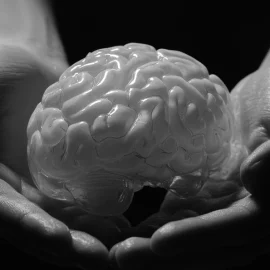

This article is an excerpt from the Shortform book guide to "The Courage to Be Happy" by Ichiro Kishimi and Fumitake Koga. Shortform has the world's best summaries and analyses of books you should be reading.
Like this article? Sign up for a free trial here.
Do you intentionally build meaningful connections? How do different kinds of relationships contribute to your overall well-being?
Psychotherapist Alfred Adler taught that 3 types of relationships—working relationships, friendships, and loving partnerships—play a crucial role in our lives. Each offers unique benefits and challenges. By understanding the dynamics, you can foster stronger connections and improve your sense of belonging.
Keep reading to discover how you can nurture these essential relationships and enhance your personal growth.
Adler’s 3 Types of Relationships
Kishimi and Koga discuss Adler’s notion of Gemeinschaftsgefühl, explaining that this concept refers to a person’s sense of belonging within a community. They emphasize that human beings are inherently social creatures, making interpersonal connections essential for both our existence and contentment. Adler’s teachings, as they point out, suggest that our interactions with others are the source of all our struggles and pleasures. Consequently, our overall life satisfaction and well-being are significantly influenced by the nature and quality of our relationships with other people.
To strengthen your sense of community, you must nurture 3 types of relationships that Adler considers to be fundamental: working relationships, friendships, and loving relationships.
Fundamental Relationship #1: Working Relationships
You can help others simply by existing and participating in your community, but what does that really mean? Adler identified three fundamental life tasks that each person needs to undertake in order to find happiness, but these “tasks” really describe different types of relationships with the people in your community. The first of these fundamental relationships is working relationships.
Kishimi and Koga explain that society functions most effectively when individuals focus on their own strengths and areas of expertise. This concept is known as division of labor. For example, when you need a new car, you don’t attempt to build one yourself; instead, you buy from a manufacturer that specializes in automotive production. This allows you to focus on your own job and expertise—the ways you’re best able to contribute to society—while benefiting from the skills and knowledge of others.
Kishimi and Koga also say that all professions, regardless of their prestige or salary, are valuable to society. If a job exists, it means there’s a societal need for that role. Therefore, there’s no difference in importance between, say, the CEO of a multinational corporation and an entry-level employee at a fast-food restaurant; both people are filling necessary positions that help keep society functioning.
(Shortform note: The authors are understating the importance of division of labor here—it doesn’t just make society more efficient, it makes our entire lifestyle possible. To illustrate this, a video from the channel How to Make Everything shows how difficult it would be to make a simple chicken sandwich if you had to do everything yourself. Between growing the wheat for flour, raising a chicken for meat, and everything else involved in making the sandwich entirely from scratch, the process took six months and cost $1,500. By contrast, because we live in a society with extreme specialization and division of labor, you can cheaply buy that same sandwich at any deli, or just make it at home using ingredients you bought from the grocery store.)
If all jobs are important, then your worth as a person isn’t determined by the specific job you hold, nor even how well you perform in that role. Instead, Adler taught that your attitude is the best measure of your value as a worker. This is because your attitude ultimately determines whether people will turn to you or to one of your competitors (remember, Adler’s “life tasks” are really about relationships). When you approach your work with honesty and enthusiasm, you’re better able to form working relationships with others, and therefore you become a valuable asset to your employer and society.
For example, a salesperson who has extensive knowledge of every product their employer sells, but has an off-putting attitude that drives away potential customers, won’t be very valuable to the company despite their expertise. Conversely, someone who doesn’t yet know as much about the products, but is eager to learn and happy to serve customers, will be much more valuable in that role.
(Shortform note: Recent research backs up the authors’ assertion that attitude has a larger impact than job skills on an employee’s success. For example, the compiled results of two studies—one from 2011 and the other from 2020—show that 89% of employees who are fired within their first 18 months fail because of their “soft skills” rather than their job skills. Soft skills include things like an employee’s willingness to learn, their ability to work on a team, and their readiness to adapt to change; in short, their attitude. Meanwhile, just 11% of those new hires lost their jobs due to a lack of competency.)
Fundamental Relationship #2: Friendships
Kishimi and Koga say that you learn about others and develop a sense of community through friendship, the second of Adler’s fundamental relationships. Building strong friendships starts with respect for others—you have to like people for who they are, not for who you think you can turn them into.
The other key component of friendship is empathy: Strive to put yourself in your friends’ positions, and consider what choices you’d make and what you’d want if you were them.
The authors add that, frequently, what people want in a friend is somebody who really listens to them. By demonstrating genuine interest in your friends’ concerns and interests, you show them that you value them and their perspectives. It’s important to note that this doesn’t necessarily mean agreeing with everything your friends believe; rather, it means respecting their ideas and opinions.
(Shortform note: Although they don’t use these terms, the authors are talking about using active listening skills and emotionally validating your friends. To be a better listener and show empathy more effectively, it’s often helpful to focus on understanding and accepting your friends’ emotions rather than immediately trying to fix their problems. Also, avoid interruptions, distractions, judgments, and personal agendas, and instead ask questions about how they’re feeling; this shows that you’re really hearing them and encourages them to further express their emotions. Respond with statements that acknowledge their emotions, express your support, and ask how you can help—avoid comments that dismiss or minimize what they’re going through.)
Finally, unlike working relationships, friendships are selfless and unconditional. Your connection with your friends is based on genuine fondness for one another, rather than the hope of any external benefits or rewards. By cultivating these authentic, unconditional friendships, you not only enrich your own life but also contribute to a stronger sense of community and belonging for yourself and those around you.
(Shortform note: The importance of friendships is well-documented, but more recent research has suggested that casual acquaintances can also provide an important boost to your mental and emotional health. For instance, acquaintances might include the employees at stores you visit often. In short, the more acquaintances you have—and the more frequently you interact with them—the happier you’ll be.)
Fundamental Relationship #3: Loving Relationships
The last fundamental relationship that Kishimi and Koga discuss is love, and they say that it’s the most important task in life. It’s also a unique kind of task, because it belongs to you and to someone else at the same time: When you’re in a loving relationship, your task is to build happiness together with your partner.
Remember: Adler taught that you can’t find happiness when you’re focused solely on yourself. He also taught that, from infancy, our main concern is receiving love because we recognize that our survival depends on the love and care of others. Therefore, to grow as a person and find happiness, you must shift your focus from receiving love to giving love.
The authors say that you can achieve this growth through a loving relationship. This is because, when you’re in such a relationship, your priorities shift from fulfilling your own needs and desires to fulfilling the shared needs of you and your partner—your focus changes from “me” to “us.” As a result, you finish growing past the self-centeredness that you developed in infancy and discover the joy of contributing to others instead.
| Connection: Love as the First Step Toward Selflessness This principle of shifting your focus through a loving relationship builds on a major point in the authors’ earlier book, The Courage to Be Disliked. In that book, Kishimi and Koga said that the main difference between happy and unhappy people is what they try to accomplish with their relationships. Note that, in this case, they were discussing all relationships rather than just romantic relationships. In brief, unhappy people are concerned with earning others’ approval (receiving love), because they believe that their worth is determined by what others think of them. On the other hand, happy people are concerned with how they can help others, and they derive their sense of self-worth from feeling useful (giving love). The Courage to Be Happy presents loving relationships as a bridge between those mindsets: Being useful to your partner teaches you to think about how you can be useful in every relationship. Therefore, love is one way to start moving past self-centeredness and toward the selflessness that Adler believed brings happiness. |

———End of Preview———
Like what you just read? Read the rest of the world's best book summary and analysis of Ichiro Kishimi and Fumitake Koga's "The Courage to Be Happy" at Shortform.
Here's what you'll find in our full The Courage to Be Happy summary:
- What the earliest days of psychology can teach you about being happy
- How to raise children to be independent with a strong sense of community
- How to apply Adlerian psychology to your own life






